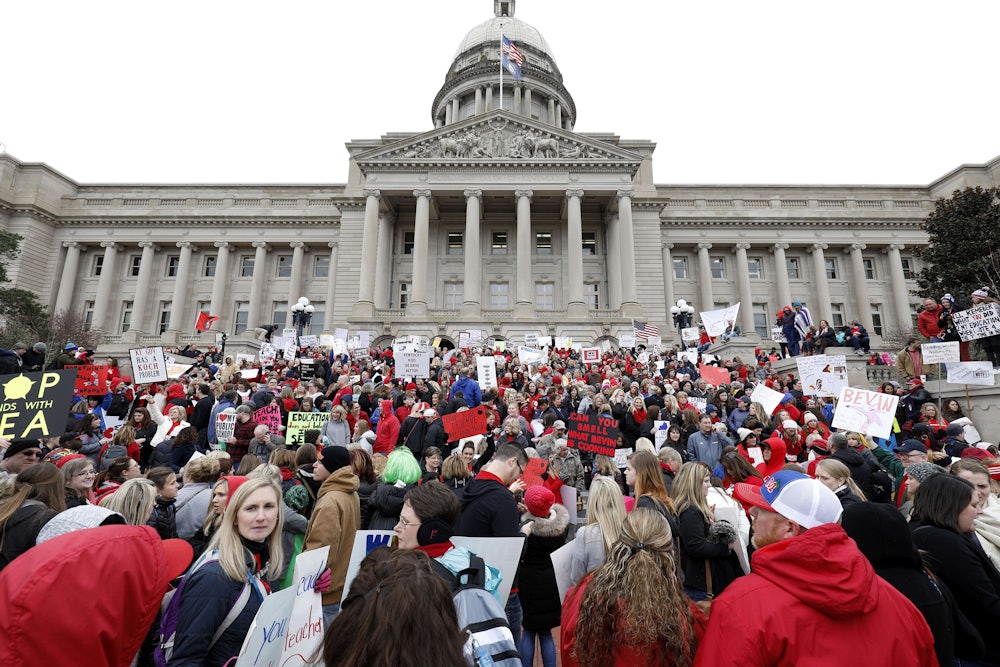A True Labor of Love
Why teachers are adopting a more militant politics

Teachers are expected to do their jobs for the love of it.
For years now, that has meant getting by with tattered, aged textbooks, in buildings that are falling apart, and spending their own money on toilet paper, food, hygiene items, and socks for students, even as their own wages fall and their health insurance premiums spike and pensions are carved away.
It has meant, too, that any action by teachers to improve their working conditions—which, they have stressed since the 2012 Chicago Teachers Union strike, are their students’ learning conditions—is immediately depicted as selfish, uncaring, improper. There is no amount of money that bankers must be happy with, but our culture tells us that workers whose job is not the production of widgets (or toxic financial products) but the care and education of others must accept any sort of misery out of their devotion to their work.
Around the country, reformers have run for office in their unions—most famously in Chicago, with the Caucus of Rank and File Educators (CORE) taking power and precipitating the 2012 strike, but also in Seattle, Los Angeles, Portland, St. Paul, New York, Massachusetts, Puerto Rico, and North Carolina, among others. Teachers have refused to administer standardized tests, built coalitions for street protests and to defeat legislation, held sick-outs, and both threatened to and actually gone on strike. They have pushed back on testing, school closings, charter schools, merit pay, insurance and pension cuts, and won reforms including social services, restorative justice initiatives, and increased funding.
What has been happening in so-called Trump Country—West Virginia, Oklahoma, Kentucky, and Arizona, specifically—in recent months is then deeply connected to the shifts that have come before. Indeed, the visuals of red-clad teachers in capitol continue reading: Why Teachers Are Adopting a More Militant Politics | The New Republic:



